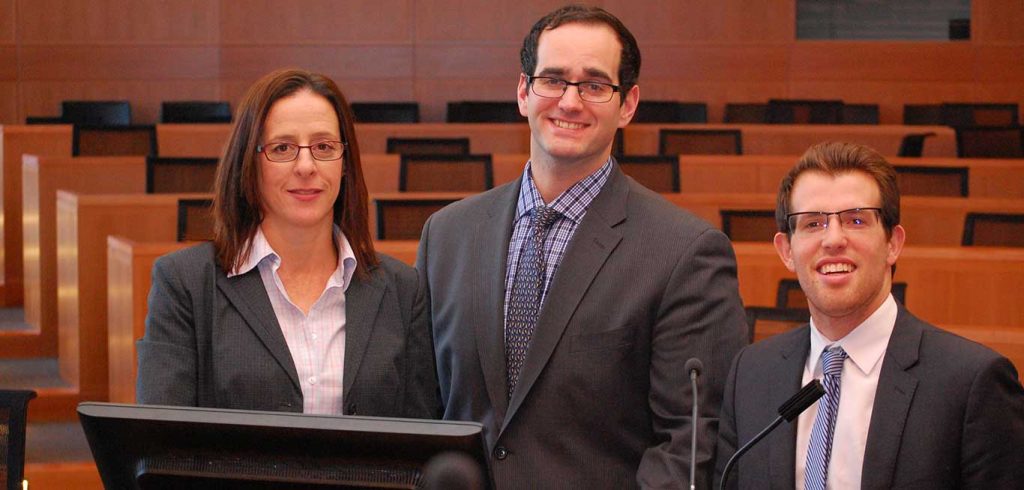Thankfully, low income New Yorkers who find themselves in the sights of the IRS can turn to Fordham Law School’s Federal Tax Clinic for help.
The clinic, which is one of 17 clinics run out of the college, has received an annual matching $95,000 grant from the IRS since its founding in 2000, to provide assistance to taxpayers who cannot afford a lawyer to help them navigate the agency’s bureaucracy.
Elizabeth Maresca, supervising attorney at the clinic and a clinical professor of law at the law school, said the clinic’s two-dozen 2L and 3L students work an average of a few dozen cases a year. Students don’t help clients actually do their taxes—that’s a job for accountants—but they represent them in IRS audits, help them file paperwork, contact officials, and, in rare cases when a settlement can’t be reached, represent them in court.
To qualify for representation, clients must make a maximum of 250 percent of the Federal Poverty Level; for a family of four, that would be $60,000. The clinic’s clients tend to be hourly workers, those employed part-time, or those recently retired and dealing with problems left over from when they were working. Sometimes, Maresca said, clients don’t even need the full representation of a team of students.
“Knowledge is power, so people will come to us with a problem and we’re able to talk to them, review their documents, and give them a path to take in order to resolve the problem on their own,” she said.
“Then they are able to represent themselves—but with our guidance.”
A big focus of the clinic is helping clients procure child and earned income tax credits, because those are key to lifting children out of poverty. Recently, Maresca said, they’ve seen an increase in identity theft cases, which are particularly hard for people to resolve on their own and come with an added level of stress.
“The IRS is like a big machine, and if you don’t know the right door to knock on or turn the right crank, you can’t get the outcome you need. In the identity theft area, we’re so knowledgeable and have experience, we’re really able to help people unravel that problem,” she said.
For students, the clinic is a unique opportunity to represent clients before graduation. Only about 10 percent of cases actually go to court, but Maresca said the experience of meeting with clients, listening to their problems, and guiding them through the vagaries of tax law is still invaluable. It also instills in them the value of pro bono work.
“Sometimes the best and brightest students in the classroom aren’t always the students who succeed the most in practice, because the skills and the requirements are a little different,” she said.
“So it can be a great confidence-boosting experience to come to a clinic and learn you can help a client.”

